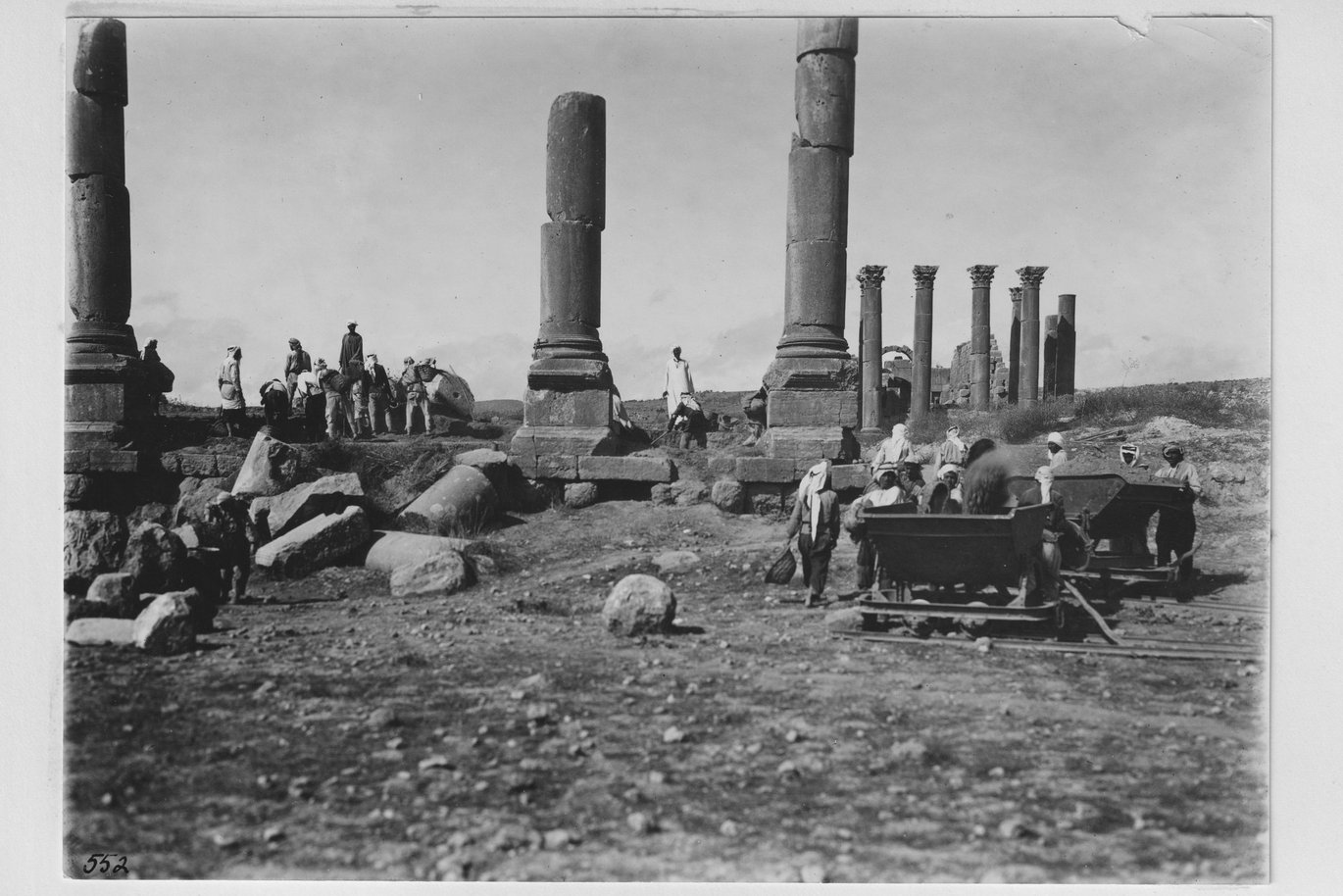New research project to rediscover overlooked ancient cities excavated in the 19th and early 20th centuries
Rubina Raja, Professor of Classical Archaeology at Aarhus University, has received a grant from the Gerda Henkel Stiftung for an international research project that will shed new light on "forgotten" ancient cities such as Antiochia, Gerasa and Palmyra.

Cities such as Antiochia (Turkey), Gerasa (Jordan) and Palmyra (Syria) have been overlooked for centuries in their physical forms, but they contain invaluable knowledge about the ancient world. In the 19th and 20th centuries, they were "rediscovered" by archaeologists, but their history, like other unexplored ancient cities, is filled with overlooked details and discoveries. Rubina Raja, Professor of Classical Archaeology at Aarhus University, has now received a grant to lead a project that will investigate what was documented and what was lost in the previous excavations, and what this says about the influence of archaeological practice on our understanding of these sites – even today.
"It is a major grant that has been awarded under the Gerda Henkel Stiftung's Lost Cities international initiative, which now provides the opportunity to carry out this ambitious collaborative research project across research and museum institutions in several different countries," says Rubina Raja about the project, which is called: "Lost Cities Rediscovered: Reexamining Excavation Histories in Late Ottoman and Mandate Western Asia". The project runs from spring 2025 to the end of 2028.
Rediscovery of lost cities and the knowledge we have lost
The project, as Rubina Raja describes it, takes a dual perspective on lost cities: Partly as cities that were rediscovered at the end of the 19th and 20th centuries, and partly as knowledge that was lost due to the exploration methods or research agendas used at the time.
"In the project, we will work with a number of cities and the historiography of their 'rediscovery'. The cities range from location in modern Turkey, the Middle East, Iran and Iraq and include Antioch (Antakya, Turkey), Gerasa (Jerash, Jordan), Palmyra, Raqqa and Samarra. We focus on the archives that have been collected over the years during the excavation of these sites," says Rubina Raja, who with her research team wants to uncover the stories of how these cities were excavated and documented – or not documented – and understand what this means for our contemporary research in the ancient world.
Why is it important to rediscover and rethink previous exploration of these very lost cities?
"In the project, Lost Cities has a double meaning: it means cities that have been forgotten in the Western world, but not in the local and regional world, and also "lost" in the sense that they "disappeared" - in that they were excavated and on the one hand exposed and on the other hand were lost, because there was not always sufficient documentation seen with our modern eyes or one was interested in very specific issues, often driven by Western notions of the ancient world. It is central on several levels to "rediscover" lost or forgotten cities: it gives us an opportunity to investigate the processes of colonization and decolonization, to uncover untold stories and finds, and to better understand the origins of urban archaeology in the Eastern Mediterranean area, which was a deeply urbanized region in antiquity."
The ambition of the project is thus also to show how archival studies combined with deep archaeological and historical knowledge can give us completely new insights into the study of ancient cities.
"The project examines how archival studies combined with in-depth archaeological knowledge can open up new perspectives on ancient cities. This is not only relevant to research in the past, but also to today's discussions about cultural heritage and the role of colonialism in the creation of our knowledge," explains Rubina Raja.
International collaborations and activities
The project involves Rubina Raja, Professor of Classical Archaeology, Aarhus University; Dr. Olympia Bobou, Aarhus University; and curator Dr. Miriam Kühn, Museum für Islamische Kunst, Berlin. The project has several collaborators from institutions in Europe, the Middle East and the United States, including the Max Planck Institute for the History of Science, Berlin.
The project will include the employment of three postdocs for the project and a number of research trips, workshops and international conferences.
Contact
Rubina Raja, Professor and Head of Centre
for Urban Network Evolutions (UrbNet)
Classical Archaeology
Department of Culture and Society
Aarhus University
Mobile: +45 2718 8390
Mail: rubina.raja@cas.au.dk
